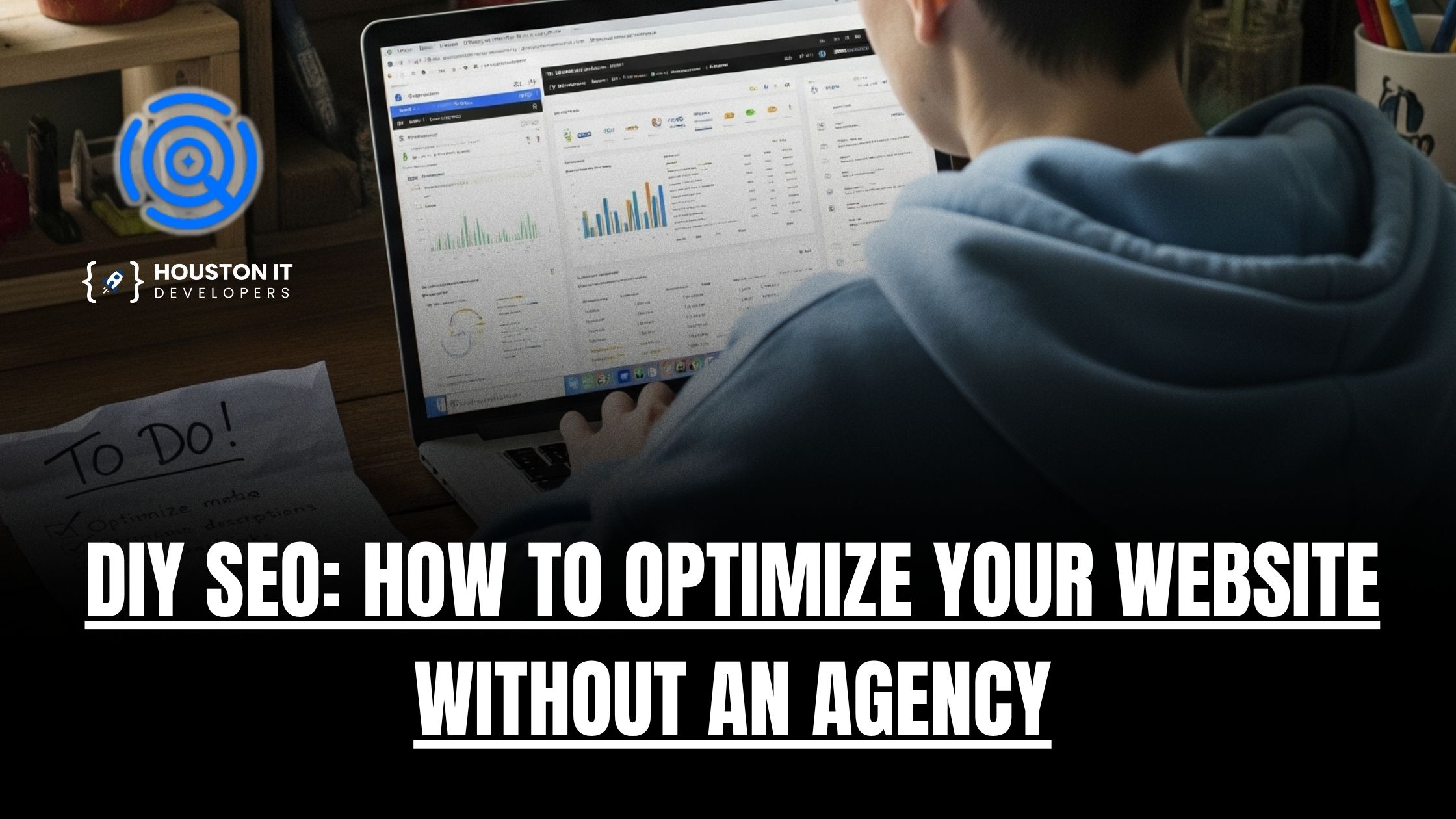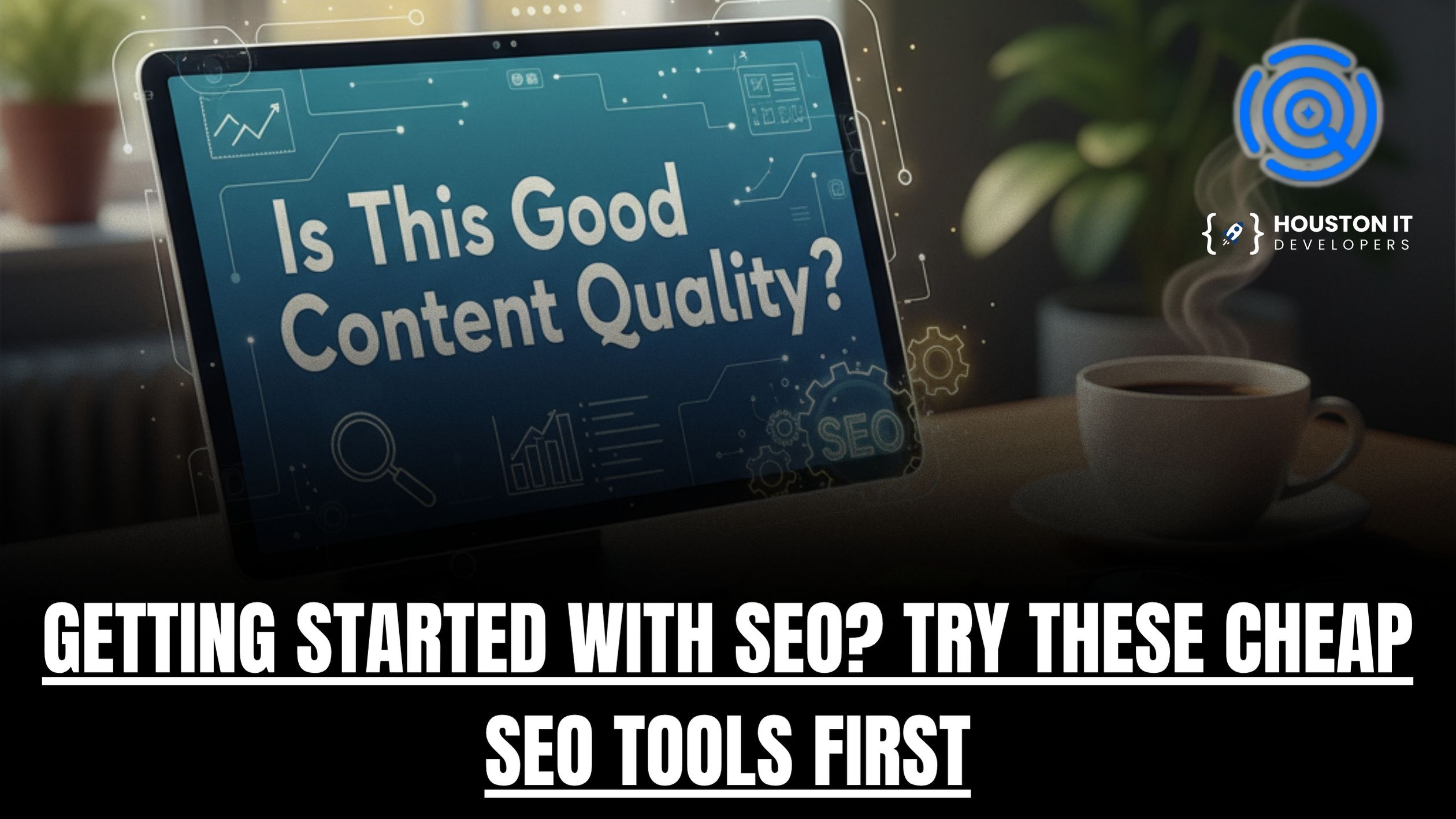Are you trying to get more traffic to your website but not sure where to start? You are not alone. Over 53% of all website traffic comes from organic search, yet many small business owners struggle to make their websites rank. Around 47% of small-business owners manage their marketing on their own, often without formal training. SEO can seem too technical, too costly, or simply out of reach.
That is where DIY SEO comes in. With the right strategy and tools, you can optimize your website yourself and start seeing better visibility in search results. All it takes is a clear plan, a simple do it yourself SEO guide, and a reliable DIY SEO tool to help you spot and fix issues efficiently.
In this blog post, you will learn how to improve your website’s SEO without hiring an agency, using easy steps that deliver real results.
What Is DIY SEO and Why It Works for Beginners
DIY SEO refers to the process of improving your website’s visibility in search engines without hiring an agency or consultant. Instead of relying on outside help, you take charge of your own optimization efforts using online resources, checklists, and tools. This approach is especially appealing to beginners, small business owners, and content creators who want to grow their traffic without breaking the bank.
With a do it yourself SEO guide and the right mindset, you can cover essential SEO tasks on your own. These include improving your site’s structure, researching keywords, optimizing on-page content, and fixing technical errors that may prevent search engines from crawling your pages properly.
Here are a few reasons why DIY SEO works so well for beginners:
- It allows you to learn SEO at your own pace without pressure from agency contracts
- You maintain full control over your content and site decisions
- It saves money that can be reinvested into other areas of your business
- Modern DIY SEO tools simplify technical work and offer real-time feedback
- You build long-term skills that continue to add value as your site grows
Because search engines reward quality content and user experience, you don’t need expensive strategies to see progress. DIY SEO is about taking consistent, informed actions. With a solid foundation and the support of a reliable DIY SEO tool, you can compete in search results and make your site easier to find for the audience you care about.
A Do It Yourself SEO Guide: Where to Start and What to Fix First
Jumping straight into SEO without a plan can lead to wasted time and missed opportunities. That is why every beginner should follow a structured approach that starts with the essentials.
A strong SEO foundation not only helps your site get indexed properly but also improves the user experience. This do it yourself SEO guide outlines the first actions to take before moving on to more advanced tactics like backlink building or technical audits. These core tasks will have the greatest impact on your site’s visibility when starting out.
| Step | What to Do | Why It Matters |
| Audit your website structure | Test your website on mobile devices to ensure it adjusts properly and loads in under three seconds. Review your page structure so that categories, subpages, and internal links make logical sense. | Google prioritizes usability and a strong site hierarchy |
| Fix basic technical issues | Run a site crawl using a DIY SEO tool to spot broken links, duplicate content, or orphaned pages. Ensure every page has a unique title tag, meta description, and proper canonical setup. | Enhances crawlability and indexing |
| Target the right keywords | Use free tools like Google Keyword Planner or low-cost ones like Ubersuggest to find long-tail keywords. Focus on search terms with low competition and clear user intent related to your content. | Aligns your content with user search intent |
| Optimize existing content | Review your old blog posts, landing pages, and service descriptions for outdated information and weak keyword targeting. Add relevant internal links, update headers, and ensure your content answers real user questions. | Strengthens relevance and keeps your site fresh |
| Improve on-page SEO | Update title tags and H1-H3 headers to include target keywords naturally. Add alt text to all images and shorten long URLs to be clean and descriptive. | Helps search engines understand and rank your content accurately |
These early tasks lay the groundwork for everything that follows. By using a reliable DIY SEO tool, you can identify and correct these issues quickly, even with little technical experience. The goal is not perfection overnight, but steady improvement through simple, effective changes.
Remember that DIY SEO is about building momentum. The more you fine-tune your site with clear intent, the better your long-term results will be. If you are still wondering whether this effort is truly worth it without a large spend, take a look at is SEO worth it without a huge budget to see how small steps can lead to real gains.
Using a DIY SEO Tool Like OnPageSEO.ai to Optimize On-Page Content

One of the biggest challenges in DIY SEO is knowing whether your changes are actually improving your website. While content and strategy are important, the right tool helps you move from trial and error to measurable progress. A reliable DIY SEO tool provides clarity, saves time, and simplifies technical tasks that would otherwise require expert support. Instead of manually checking every page element or switching between multiple platforms, you can manage everything in one place.
That is where OnPageSEO.ai becomes essential. This AI-powered Chrome extension is designed for marketers, content creators, and small business owners who want fast and actionable SEO insights. It allows you to optimize directly from your browser without relying on complex software or external consultants.
Below is a breakdown of what you can expect from OnPageSEO.ai:
| Feature | What It Does |
| Instant On-Page SEO Audit | Generates a real-time SEO health score with AI recommendations tailored to your page |
| Title and Meta Description Generator | Uses AI to write optimized titles and descriptions based on your existing content |
| Header Structure Audit | Displays all headers (H1 to H6) in order with color-coded suggestions and clickable navigation |
| Link Management | Provides a complete view of internal and external links with anchor text analysis and suggestions |
| Image SEO Audit | Detects missing alt text, finds image titles, and offers instant WebP conversion options |
| Keyword Analysis | Tracks keyword usage, density, and total word count with easy export to CSV |
| Google Search Console Insights (Pro) | Offers full GSC data for each page with AI-based improvement tips for indexability and tagging |
| Simple Integration | Installs in seconds and works directly within your Chrome browser for seamless page analysis |
OnPageSEO.ai gives you the power to apply expert-level SEO without needing advanced knowledge or coding skills. Its intuitive dashboard and real-time analysis make it easier to optimize each page with purpose. Whether you are editing a blog post, reviewing a product page, or checking your homepage, you will know exactly what to fix and how to do it.
For anyone following a do it yourself SEO guide, this tool transforms guesswork into confidence and helps you build results faster. To see how it compares with other browser-based tools, take a look at top SEO plugin chrome and find the right fit for your workflow.
FAQs About DIY SEO
Can I do SEO from home?
Yes, you can absolutely do SEO from home. With a reliable internet connection, a laptop or desktop, and access to online tools and resources, you can manage your website’s search engine optimization on your own. Many small business owners and freelancers successfully run their SEO efforts without ever leaving their workspace.
Is SEO free if I do it myself?
DIY SEO can be very affordable and in many cases, free. You can use free tools for keyword research, content analysis, and basic technical audits. However, some advanced features, such as AI-generated recommendations or full SEO audits, may require low-cost tools such as OnPageSEO.ai, which offer more value for a small monthly fee.
Can you do SEO without tools?
While it is possible to do basic SEO manually, tools make the process faster, more accurate, and less overwhelming. A good DIY SEO tool helps you identify issues, track improvements, and optimize content more efficiently. Without tools, it becomes much harder to compete in search rankings or measure your progress effectively.
Final Thoughts on DIY SEO
DIY SEO puts the power of search engine visibility in your hands. You have learned how to build a strong foundation, fix common issues, and use tools to make smarter decisions without hiring an agency. By following a clear do it yourself SEO guide and using the right strategies, you can steadily grow your traffic and improve your rankings. The next step is taking action.
Start by reviewing your website’s structure, updating your content, and checking for technical problems. Then, use a tool like OnPageSEO.ai to audit and optimize your pages directly from your browser.
Whether you are just starting or looking to refine your process, OnPageSEO.ai makes it easy to track progress, apply improvements, and stay ahead of the competition.
Install the free Chrome extension and sign up today to take control of your SEO. No experience required and no agency needed.



